|
|
|
|
|
|
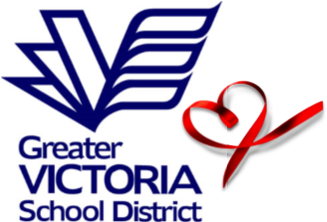 |
We hope it has been a restful, restorative break for all of you, and you have energy and optimism for your return to school. The days will be getting longer, and we hope to be moving towards a more positive spring. There are many opportunities in the next few months to support counsellors; we hope you find the opportunities helpful.
|
|
|
|
|
|
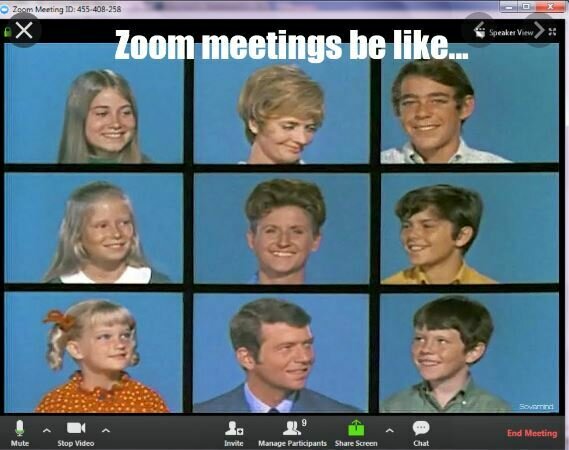 | Counselling Meeting Dates:
Please hold the following dates for Counsellor Zoom meetings starting at 8:30am:
January 21st
February 25th
April 6th
May 19th
|
| |
|
|
District Counselling Team Contact Info: Secondary District Counsellor: Jennifer Chambers jchambers@sd61.bc.ca
Middle District Counsellor: Monique Moore mmoore@sd61.bc.ca
Elementary District Counsellor: Maureen von Tigerstrom mvontigerstrom@sd61.bc.ca
Youth & Family District Counsellor: Jen Aston jaston@sd61.bc.ca
District Indigenous Counsellor Joanne Mitchell jomitchell@sd61.bc.ca
|
| |
|
|
Additional Members of the District Mental Health Team: District Behaviour Consultant: Dana Marchant dmarchant@sd61.bc.ca
District Principal: Pam Halverson phalverson@sd61.bc.ca
Associate Superintendent: Harold Caldwell hcaldwell@sd61.bc.ca
|
| |
|
|
|
|
|
|

| Learning Together in the Middle Years Conference - SD 61 Virtual Pro-D presents: Dr. Jody Carrington On Monday, January 25, the Middle School Conference presents Dr. Jody Carrington (author of "Kids these Days: A Game Plan for (Re)Connecting with those we Teach, Lead and Love") as a key note speaker LIVE 8:45-9:45 and the recorded session in the afternoon 12:15-1:15. The focus will be compassion fatigue and energizing conversation to encourage as well as offer strategies for resilience to educators. When we are in the midst of challenges; we are #bettertogether. There is no release time, but if you are able please join. Stay tuned for access to the zoom invitation.
|
| |
|
|
|
|
|
|
| School Based Counselling during the Pandemic: Self Care Tips
|
| |
|
|
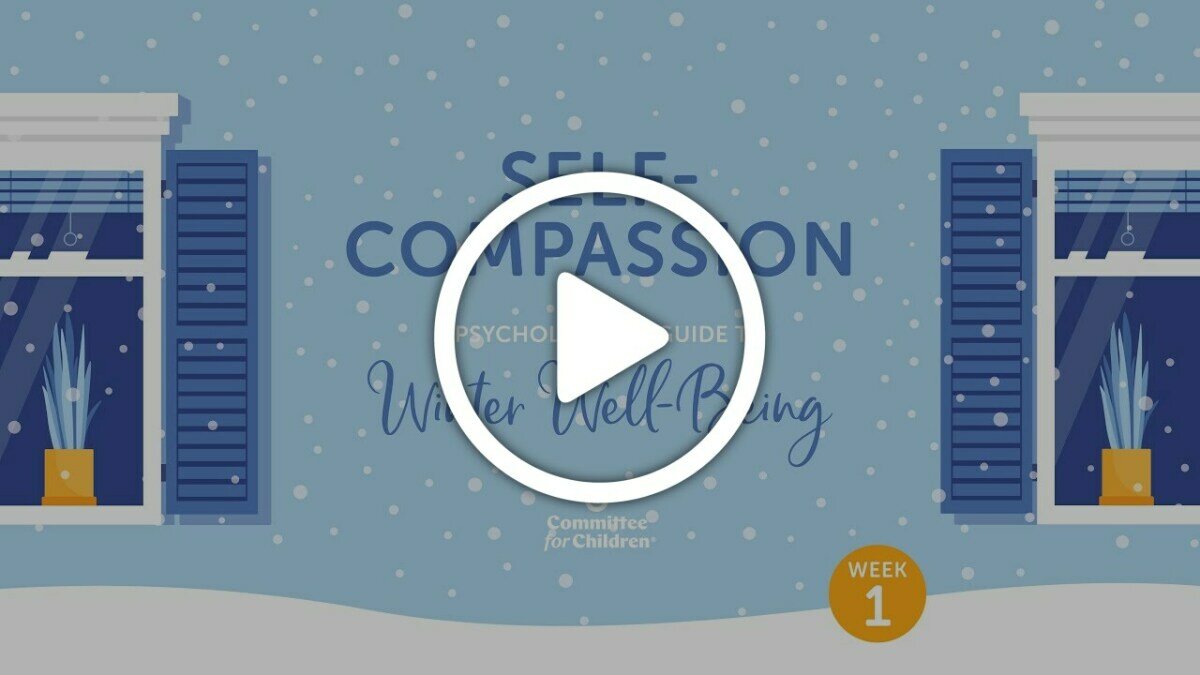 | Committee for Children - weekly self care videos throughout January Visit Committee for Children‘s YouTube channel every Monday through the end of January for a short video about mental health, presented by a licensed clinical psychologist. The weekly self-care videos will also include a daily practice grounded in research and SEL. These Winter Well-Being videos are created especially for parents. Share them with your students‘ families or watch them yourself!
|
| |
|
|
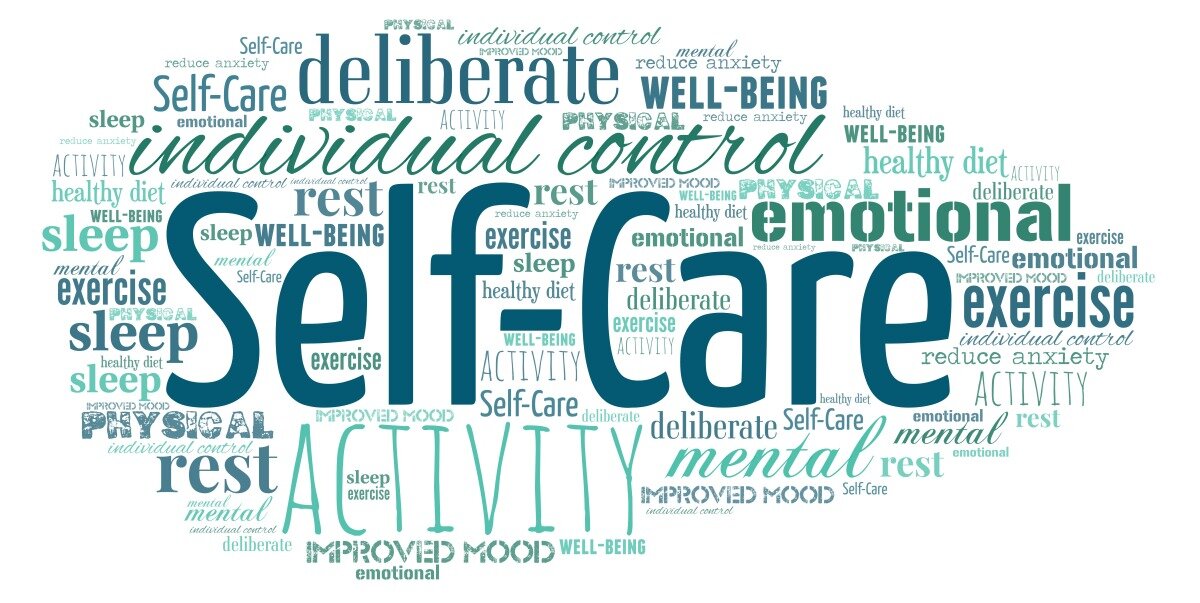 | This article focusses on increasing your resilience by exploring how you respond to your work. This will help you identify personal protective measures that may help you prevent vicarious trauma and burnout.
|
| |
|
|
|
|
|
|
|
|
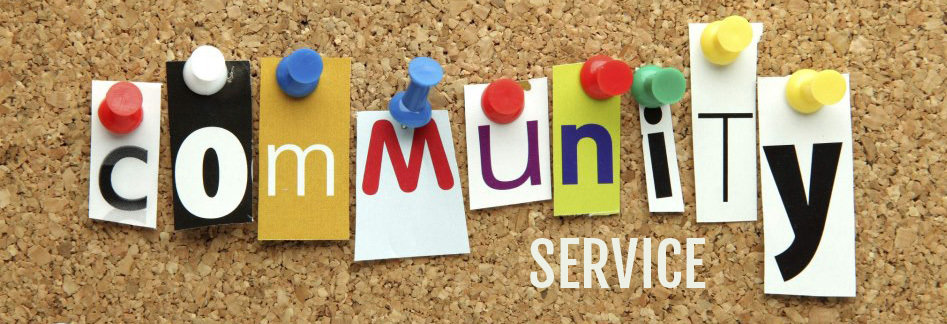 | Updated Community Resources:
|
| |
|
|
|
|
|
|

|
DATE: January 19, 2021
TIME: 6:00-8:00 pm
LOCATION: Zoom Symposium (a link will be provided). (LINK in the title)
Parents, help your child develop a strong digital citizenship foundation while reminding them that their digital tattoo reflects their real and online selves. Parents have an important role to play in providing support and guidance during critical periods.
|
| |
|
|
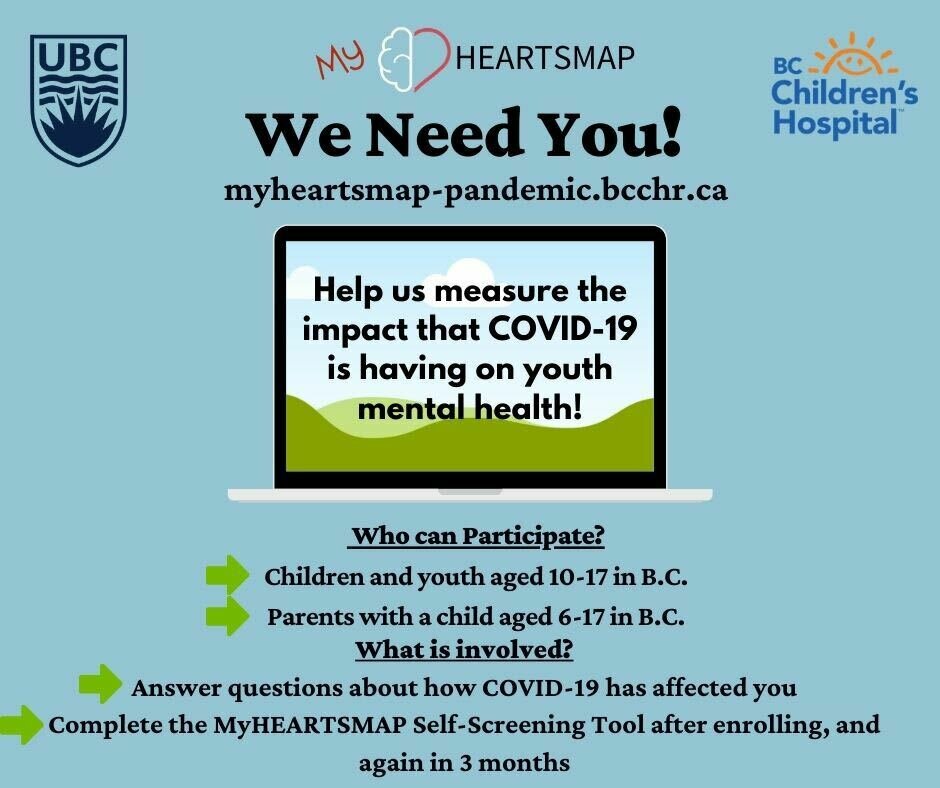
| Calling parents and youth in BC! The MyHEARTSMAP team needs your help to measure how much and in what ways the changes in our lives during the pandemic have affected the social and psychological wellness of our children and youth. Learning about our children's needs will help guide our provincial mental health resource planning.
|
| |
|
|
|
|
|
|
Counsellor Meeting Jan.21:
The January counsellor meeting is Jan 21 8:30 - 10:00am. The first 45 minutes will be for all counsellors (teacher counsellors and YFCs) and the second half of the meeting will be divided into 2 meetings: elementary/middle and secondary teacher-counsellors. Agenda items will include updates on ongoing projects, resources, and emerging topics from counsellors. Zoom invites will be sent out prior. Please contact any of the District Counsellors if you need the invitation resent. | This virtual workshop is Jan. 21/22. All participants will be able to: Understand the 6 key themes of the CPS model, Identify and assess lagging skills/unsolved problems, Understand the 3 options for handling unsolved problems, and Understand the three steps that are involved in solving problems collaboratively.
Link: https://www.eventbrite.com/e/collaborative-proactive-solutions-2-day-virtual-training-registration-122100183937
|
| |
|
|
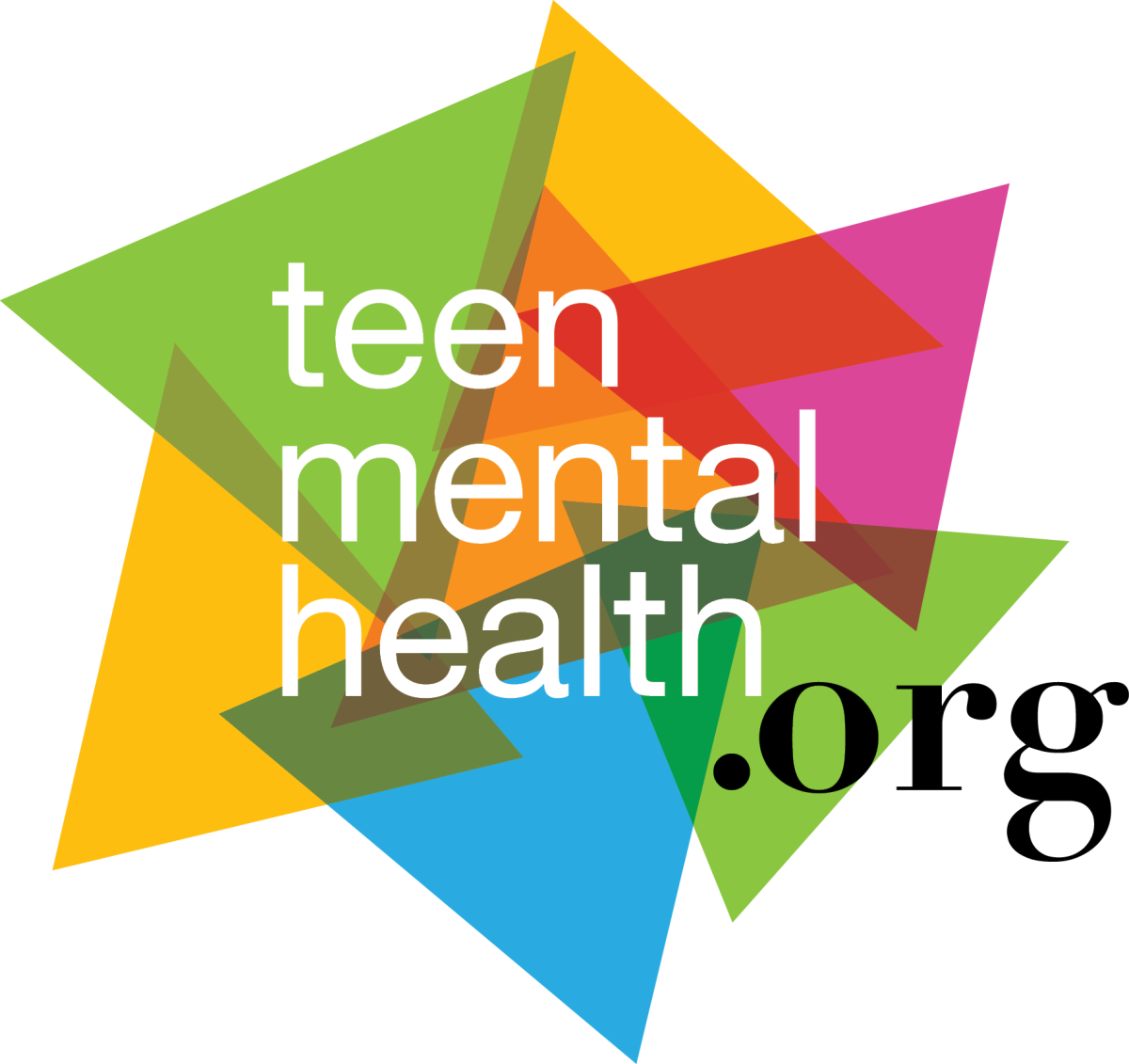
| Mental Health Literacy The Mental Health and High School Curriculum Guide is the only evidence-based mental health curriculum resource that has been demonstrated to improve both teachers' and students' mental health literacy. The Guide has been developed to help enhance the mental health literacy of students and targeted to be used with students aged 13-15.
Middle School:
New trainees - January 6/7
School teams planning and implementation: Jan.12/13/14
Emails have been sent out to middle schools and a half day of release time is offered.
|
| |
|
|
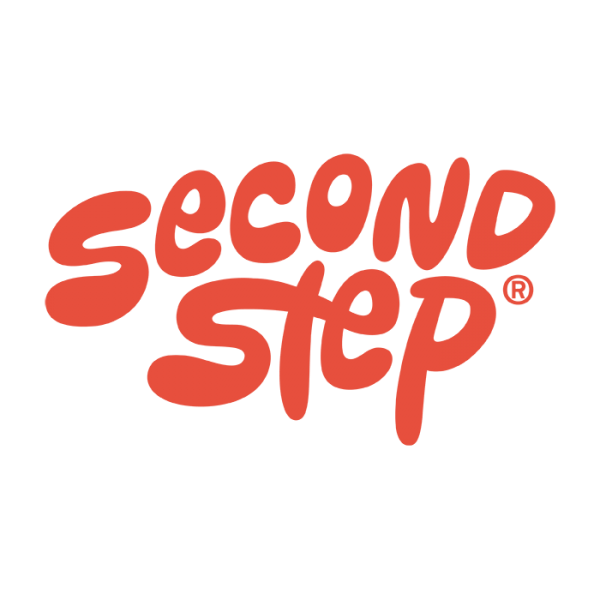 | Second Step Second Step Social-Emotional Learning (SEL) gives students the tools to excel and out of the classroom. This easy-to-teach program garners outstanding reviews from educators who've noticed schoolwide improvement and individual student progress in emotion management, situational awareness, and academic achievement.
For teachers and counsellors who have yet to receive professional development with this resource, the following training dates and release time are available.
Jan.11/18 12:30-3:00
Feb. 8/9 12:30-300
|
| |
|
|
|
|
|
|
|
January Snapshots The topics for January Snapshots are Kindness and Happiness.
|
|
|
What is the kindness gap?
a) the difference between knowing about kindness and acting on it
b) the difference between what parents report as important for their children to learn and what children report
c) the difference between giving and receiving kindness |
According to a survey of youth what contributes the most to adolescent happiness?
a) human connection
b) being kind
c) getting enough sleep
d) balanced lifestyle
|
|
|
|
Lateral Kindness:
a) works to address and end the lateral violence in the workplace, families and communities
b) is based on Indigenous values that promote social harmony and healthy relationships.
c) a term originating from the west coast that refers to non-hierarchical kindness within Indigenous communities |
|
| |
|
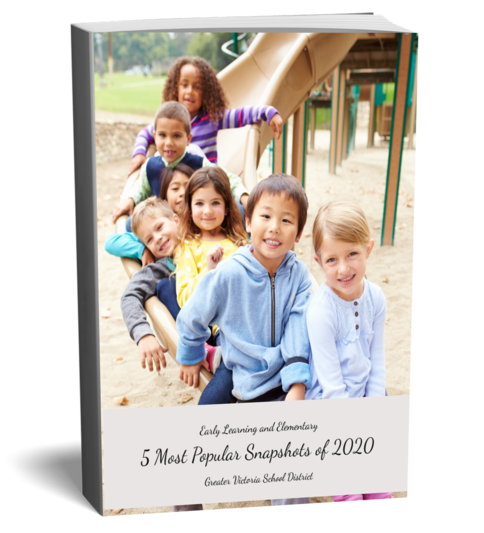 |
5 Most popular Early Learning and Elementary Snapshots
Click on book to find out!
January Middle and Secondary Posters
The goal is to have our students remember they all possess a super power that can transform lives!
|
|
|
|
|
|
|
|
NEW Opportunity to meet and collaborate with MCFD We are happy to let everyone know that school staff are able to participate in virtual student-focused meetings that MCFD/CYSN initiate through Microsoft Teams. If you are invited to a meeting, please follow
this link for instructions and you will be able to join without any downloading any additional software.
|
| |
|
|
|
|
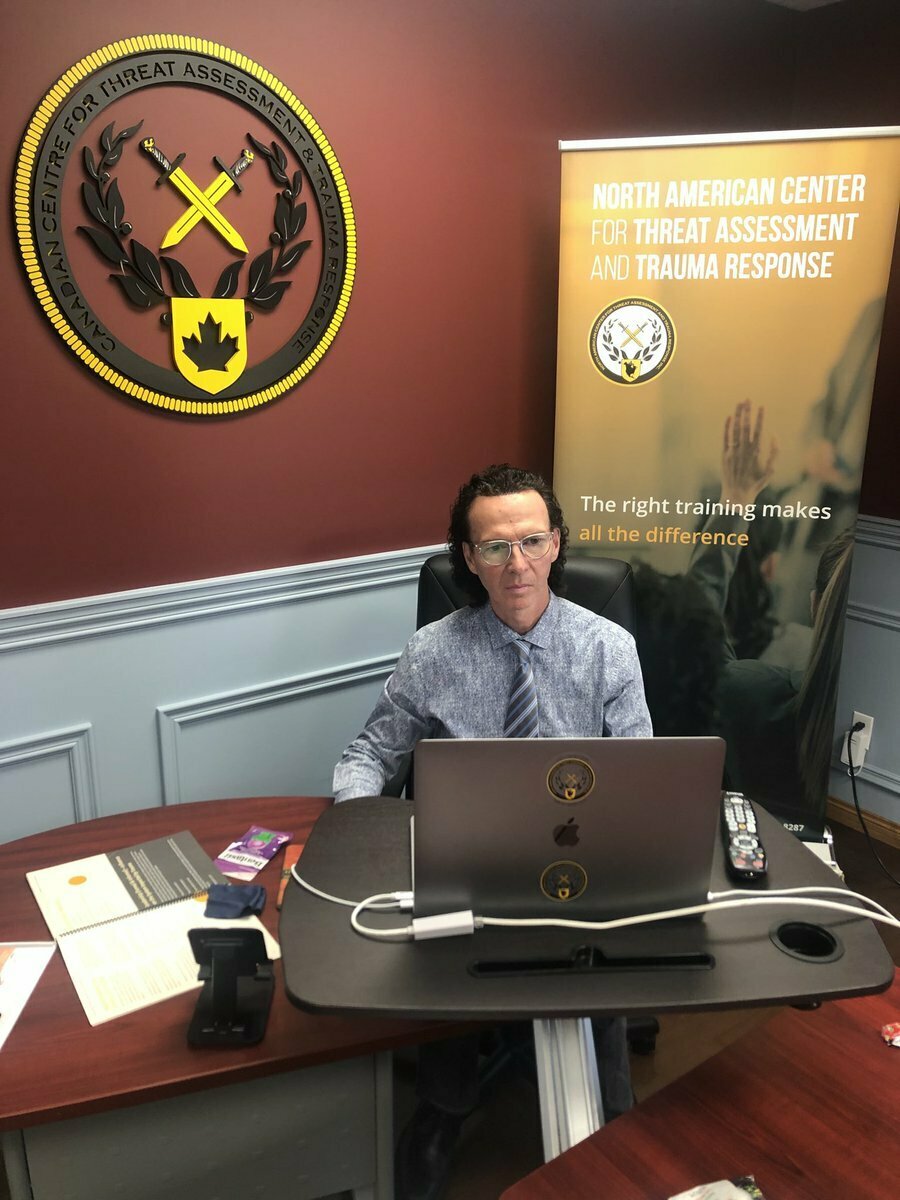 | In essence, the first wave was new to us all and some figured how to accommodate it but with the second wave, those we are concerned about know how difficult it was and feel the overwhelm of extended quarantine measures. The best intervention that schools can provide is to be thoughtful and creative about how to stay connected to our students and their families as much as possible.
|
| |
|
|
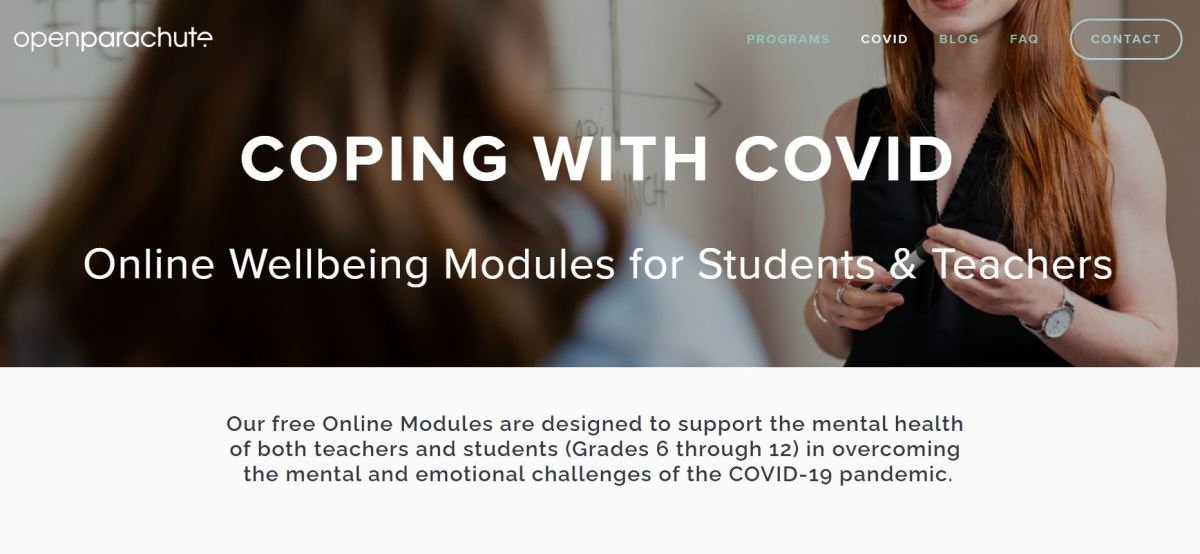
| Online Wellbeing Modules for Teachers and Students: Impact of COVID on Mental Health Clinical Psychologist, Dr Hayley Watson, has created video based modules for teachers and for students (middle and secondary) that explore the impact of COVID on mental health. The programs offer a resilience based process for managing this crisis and others. This is a free resource and it can be accessed here:
www.openparachuteschools.com/covid
|
| |
|
|
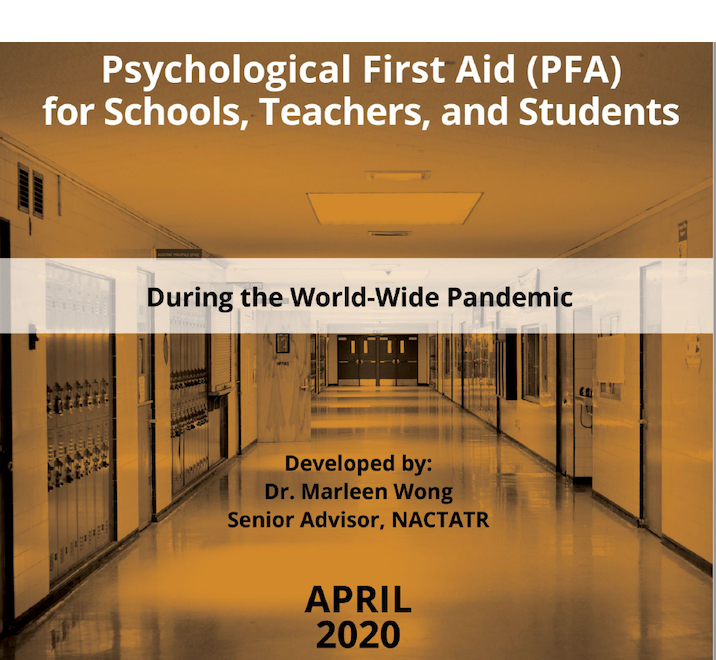 | Listen, Protect, Connect: An Evidence-Informed ModelIn keeping with best practice guidelines, Psychological First Aid for Schools: Listen Protect Connect - Model and Teach is a model of immediate help focusing on support and assistance provided to students by adults who are employed by a school or school district, specifically, teachers, educational aides, administrators, and staff members.
|
| |
|
|
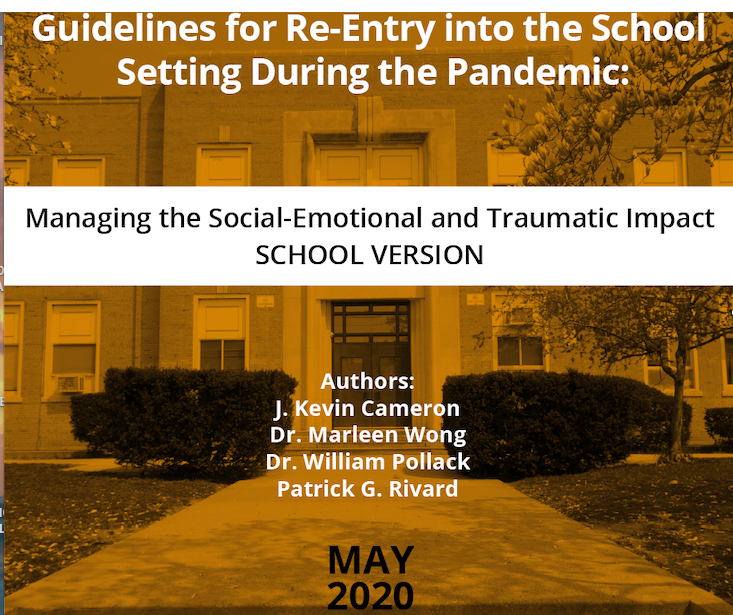 | These guidelines are provided by the authors as a resource for school district leaders, school administrators and community professionals who work with and support students and their families. They provide recommendations for thoughtful trauma-informed planning to prepare for re-entry back into the school setting during the pandemic.
|
| |
|
|
|
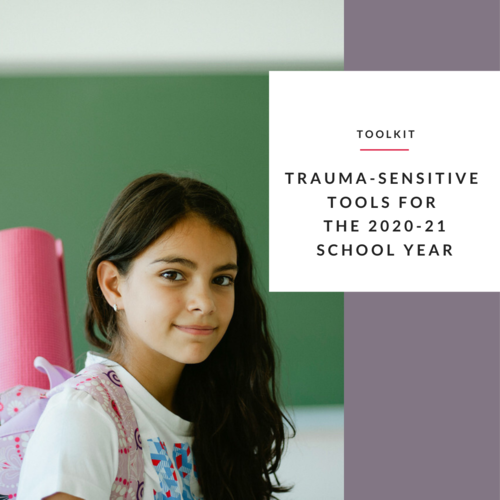 | This Trauma-Sensitive Toolkit is designed as a resource for educators, mental health professionals, and families to help:
Understand ways that trauma may present in children and teens in various settings at home and within the online learning space, including anxiety, hopelessness, withdrawal, irritability, depression, and exhaustion. Equip you with accessible 7 yoga and mindfulness tools to support your children and teens through the effects of trauma, and Identify the compounding effects of multiple collective traumas on vulnerable youth, including marginalized, and/or disenfranchised individuals and communities.
|
| |
|
|
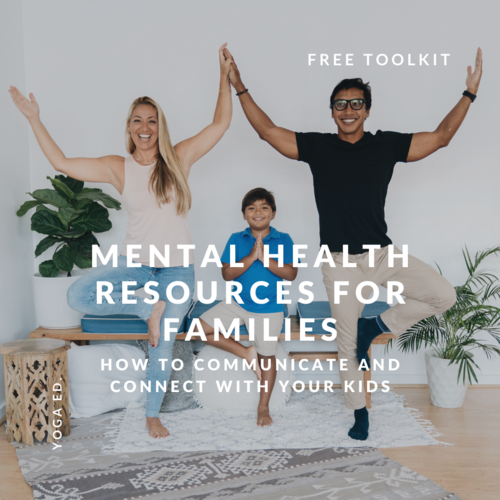 | In this toolkit, you will find tangible, effective tools to nurture healthy communication and connection as we navigate this uncertain time. This toolkit is designed as a resource for caregivers in order to: better understand your own mental health needs as well as the needs of the youth in your life, provide ideas for sustaining self-care practices, and create connections between caregivers and youth.
|
| |
|
|
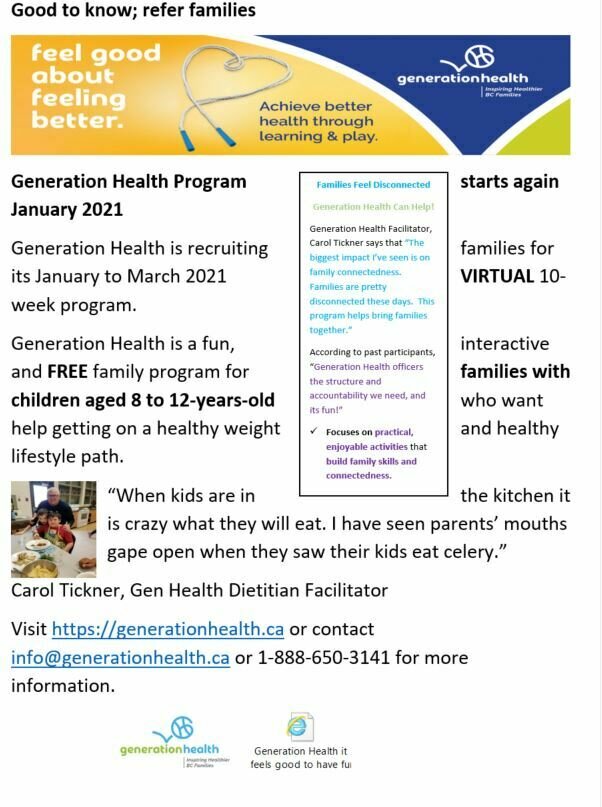 | Generation Health: January 2021
This is a free family program for children aged 8 - 12 years old focused on supporting kids getting on a healthy weight lifestyle program. It is a virtual, interactive program running from January to March, and is facilitated by a dietician.
Families can register by visiting https://generationhealth.ca or by calling 1-888-650-3141.
|
| |
|
|
Getting to school or managing a whole day at school can be really hard for some children and youth, and it can be challenging for parents and caregivers to know how best to move forward. In this 2-part webinar series, the presenters will talk about anxiety and related challenges that can be a barrier to attending school, as well as practical strategies to help things go more smoothly. These webinars are relevant whether your child is not getting to school at all or sometimes struggling to make it through the whole day. Below, you will find the recordings for all of these webinars, as well as the slides for each presentation. These webinars were held in November 2020.
This webinar series is a collaboration between BC Children's Hospital, the Vancouver School Board, and Vancouver Coastal
Health Child & Youth Mental Health.
For Parents: Elementary Students: High School Students:
|
| |
|
|
|
|
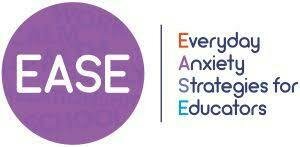
|
EASE- Everyday Anxiety Strategies for Educators is a collection of school-based, evidence-informed, anxiety management and resilience-building resources fo ruse by educators with B.C students in grades K-7. EASE helps educators teach students strategies to address the thoughts, feelings, and behaviours associated with anxiety, while also supporting social and emotional learning and mental health literacy of educators through a professional development course.
|
| |
|
|
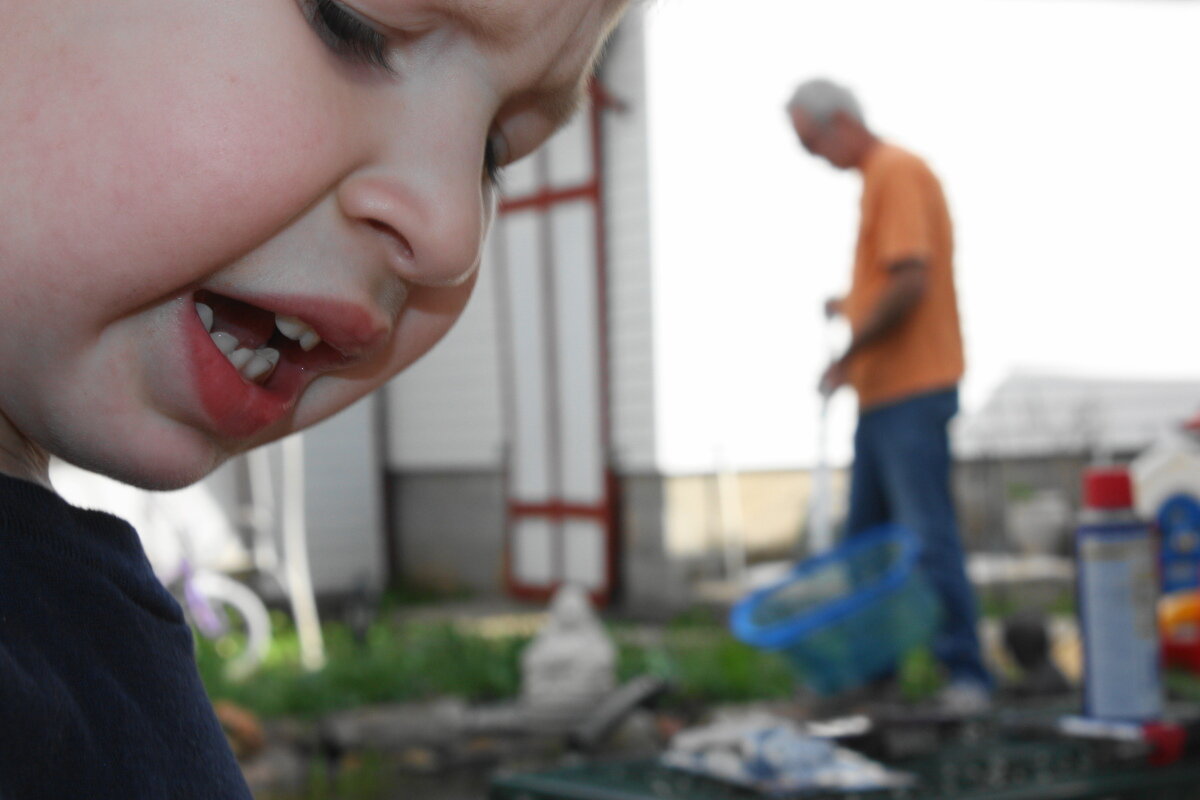 | FREE 30 minute workshop and a toolkit for parenting with emotional intelligence.
|
| |
|
|
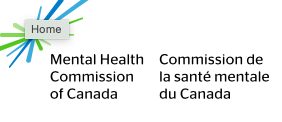 | Public health measures to fight COVID-19 have forced most of us to isolate more indoors. But for persons living in an abusive home, confinement can have serious consequences. If you‘re isolated with an abuser, use these tips and resources to protect your physical and psychological well-being.
|
| |
|
|
 | It is a natural thing to have anxiety. It is normal for very young children to be afraid of the dark, or for school-age children to worry about making friends. But sometimes normal childhood anxiety morphs into something more serious. A young girl might be afraid to ever leave her mother‘s side, even to get on the school bus, or an anxious boy may need frequent reassurance over things that happened a month ago.
Kids can develop an anxiety disorder. Eventually the disorder can start interfering with a child‘s friendships, life at home, and work in school. Even so, the anxiety still might not be noticeable to parents and caregivers.
|
| |
|
|
 | In girls, ADHD is often referred to as a “hidden disorder,” and with good reason. Most girls with ADHD have the inattentive type, which means that they have problems focusing but are not hyperactive and impulsive. But even those who are hyperactive and impulsive present with less obvious symptoms than boys, so it often goes unnoticed or unacknowledged. Instead of a diagnosis, girls with ADHD often get criticism from parents, teachers, and peers, and the fallout takes a serious toll on self-esteem.
|
| |
|
|
 | Indigenous youth in BC are staying well, even during the pandemic. See their videos and read their pages to find out what they are doing to feel connected.
|
| |
|
|
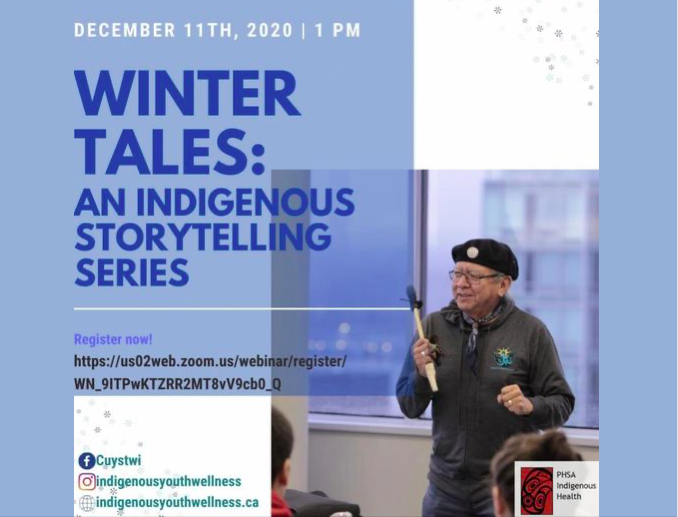 | The Foundry presents -
Winter Tales: An Indigenous Storytelling Series for Indigenous youth, elders, and families Monthly until February. Register now: https://buff.ly/3qpB6vb
|
| |
|
|
|
|
|
|
Counsellor Consultation Process for Teacher-Counsellors: A committee with elementary, middle and secondary counsellor representation presented their proposal at the November 10th meeting. They listened to feedback and are making a few adjustments prior to submitting to District Administrator and Human Resources to finalize the posting for the position.
|
| |
|
|
|
|
When a bear goes into hibernation, they do it for the health of their community and themselves. In the winter, food is scarce. Hibernating allows other animals to have access to the limited resources. It slows the spread of disease and virus among other animals during a season when immune systems are lowered and energy is limited.
It is also a time of conserving health for the bear. It‘s a time for reflection. It is a time that allows you to renew and undergo change, to honour your place in life and food cycles.
It is not a time for anxiety or fear. It is a time for hibernation. A bear can finally relax. All of the stress of finding food, territory and a mate disappear.
| The bear believes that they have done enough and trust in themselves. They know this process is necessary, and they will come out the other side, renewed.
So, be the bear. Stay home. Rest. Know you are doing this for something much bigger than yourself. And have hope that we will all come out on the other side with renewed life and energy and faith in each other.
A Bear Teaching as told by Dr. Brenda Restoule of First Peoples Wellness Circle
|
| |
|
|
|
|
|
|
Jennifer Chambers Secondary Supporting schools and families with students who have complex emotional, behavioural, mental health & Substance use needs
SBT support throughout year for Secondary teams
Tri District Collaboration with Community partners for student support (i.e. Discovery, CYMH, Police) and to develop consistent interventions (VTRA, CIRT, Pro D for counsellors)
Mental Health Safety plans
Integrated case management meetings
Collaboration with District levelled Teams (Secondary), Complex Problem Solving Team and District Support Teams
Collaborating and connecting with community agencies to support students
VTRA (Assessments and training), Safer Schools Co-cordinator
Principal Review Committee and Diversion for
Secondary
District based team meetings for Secondary (includes any referrals for Alternative Programs)
Collaborate and coordinate with middle/elementary district counsellor for counsellor collaborations and professional development (Refresher Series)
Monthly social emotional wellbeing snapshots for secondary school
Team and District Lead for CIRT including yearly training for staff
Spring Up to High School
|
Monique Moore Middle
Supporting schools and families with students who have complex emotional, behavioural, and mental health needs
SBT support throughout year for Middle teams
Student observation and creation of student support plans to guide programming needs
Mental Health Safety plans
Integrated case management meetings
Collaboration with District levelled Teams (Middle), Complex Problem Solving Team and District Support Teams
Collaborating and connecting with community agencies to support students
VTRA
Principal Review Committee - Middle
District based team meetings for middle, and grade 9 (grade 9 DBT‘s include any transitions to Alternative programs)
Collaborate and coordinate with district counsellors for Counsellor Collaborations and
professional development
Monthly social emotional wellbeing snapshots for middle school
Staff professional development in Mental Health Literacy as well as CPI
Member of District CIRT
Spring Up to High School
|
Maureen von Tigerstrom
Elementary Supporting schools and families with students who have complex emotional, behavioural, and mental health needs
SBT support throughout year for Elementary teams
Student observation and creation of student support plans to guide programming needs
Mental Health Safety plans
Integrated case management meetings
Collaboration with District levelled Teams (Elementar), Complex Problem Solving Team and District Support Teams
Collaborating and connecting with community agencies to support students
VTRA
Principal Review Committee - Elementary
District based team meetings for elementary
Collaborate and coordinate with district counsellors for Counsellor Collaborations and professional
development
Monthly social emotional wellbeing snapshots for elementary school
Staff professional development in Second Step (SEL)
Member of District CIRT
|
| |
|
|
|
|
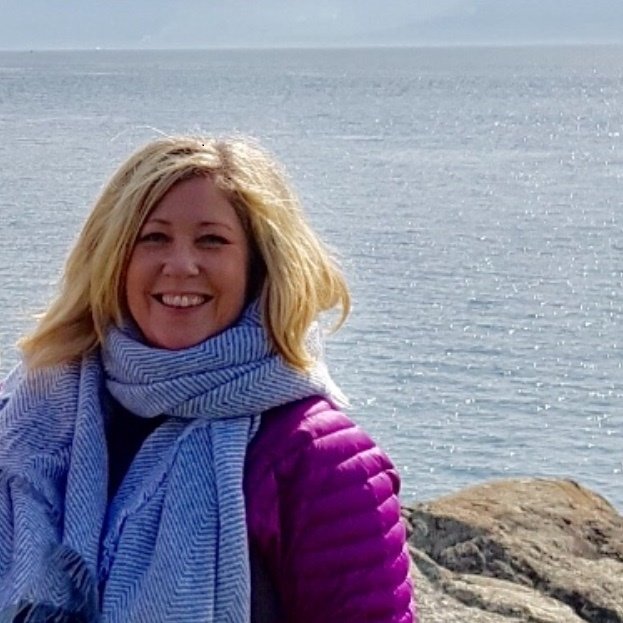
| Jen Aston
District Youth and Family Counsellor
Supporting schools and families with students who have complex emotional, behavioural, mental health and substance use needs.
Youth and Family support for schools without a school- based YFC counsellor.
District Team for supporting Children in Care Plans and partnership with Ministry of Children and Families.
|
| |
|
|
District lead for facilitation of Y Teen Mindfulness Training for Counsellors and teachers.
Counselling support for youth and families not currently connected to a school or who didn't "land" through DBT processes.
Co-facillitation of annual Connect Parent Group for parents of secondary students who have accessed District Based Team Supports.
Individualized transition plans for students moving from elementary to middle or middle to Secondary School.
| Integrated case management meetings
Collaborating and connecting with community agencies to support students
Collaboration with District levelled Teams (Elementary, Middle and Secondary), Complex Solving Team and District Support Teams
District Team supporting Social Emotional Wellness Advocates in Schools through professional development and ongoing support
Spring up to High School
|
| |
|
|
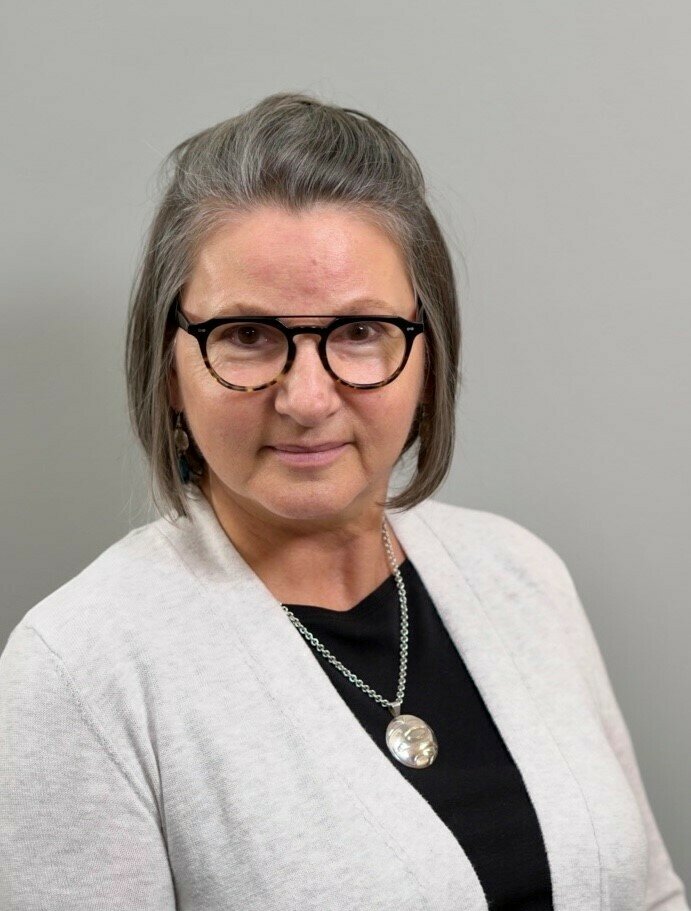 |
Joanne Mitchell District Indigenous Counsellor
As District Indigenous Counsellor, Joanne is passionate about incorporating authentic learning about Indigenous issues into our schools. She feels it is important to understand a full spectrum of Indigenous perspectives: the history of Indigenous dispossession and trauma; the strength and resiliency of the culture; and, to present the beauty and intricacies of Indigenous worldview. With other members of her team, she strives to wrap our children in the protection of cultural strength and identity, and inform a new generation of learners about the importance of Truth and Reconciliation. The Indigenous team is here to create a vision for our district to move towards reconciliation by providing guidance and support to public educators to seek out authentic voices, unpack colonial theories, and find the confidence to move
forward in our vision where reconciliation can be felt both personally and professionally
|
| |
|
|
|